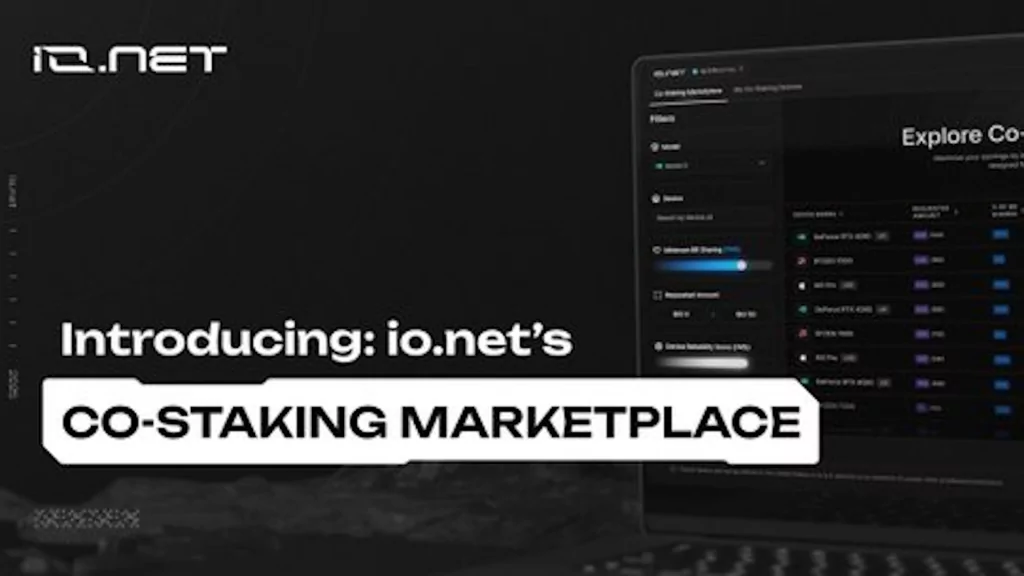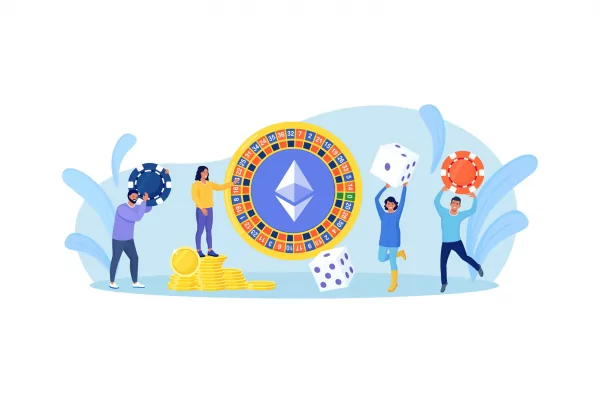
Key takeaways
- io.net has launched Co-Staking, allowing $IO holders to participate in validation without operating hardware.
- The Co-Staking Marketplace connects token holders with suppliers, reducing staking requirements and enabling broader participation.
- This update lowers barriers to entry for device suppliers and expands io.net’s decentralized computing network.
A new way to participate in io.net’s staking ecosystem
io.net, a decentralized physical infrastructure network (DePIN), has officially launched Co-Staking, a feature that enables $IO token holders to share block rewards by contributing to staking requirements. This system allows users to participate in network validation without operating hardware while helping suppliers onboard high-performance devices with a lower individual stake.
Through the newly launched Co-Staking Marketplace, $IO holders can explore staking opportunities created by suppliers.
Strengthening io.net’s network and accessibility
Co-Staking is designed to increase participation in io.net’s decentralized computing ecosystem, making it easier for suppliers to deploy high-value GPUs while providing an alternative staking option for token holders. By reducing capital requirements for suppliers, more individuals and businesses can bring high-performance computing devices online.
This system also improves flexibility, as suppliers can customize how they share staking requirements and rewards. Once a co-staking offer is live, it can be listed on the marketplace or shared directly with interested users.
How co-staking works
- Supplier Setup: Once a supplier’s device is fully staked and operational, they can create a co-staking offer, customizing the sharing percentage for both the $IO staking requirement and block reward.
- Listing on the Marketplace: The co-staking offer, with its customizable ratios, is then posted on the Co-Staking Marketplace or can be directly shared to a prospective co-staker.
- Co-Staker Participation: Co-stakers can browse the marketplace and find opportunities by filtering by device model (GPU or CPU), requested amount of $IO, offered percentage of block rewards, device reliability score (0-100), and simulated block rewards per week (a projection based on trailing 7-day data).
- Staking and Earning: Co-stakers contribute the required $IO stake and earn a proportional share of the block rewards. Either the supplier or the co-staker can choose to end the co-staking agreement through unstaking, where the relevant Wait Period and Cooldown period would apply.
The bottom line
With Co-Staking, io.net has expanded access to its staking ecosystem, lowering the barriers to participation while maintaining network security. By allowing $IO holders to stake their tokens alongside suppliers, the platform creates new earning opportunities and incentivizes more devices to join the network. This update marks a step forward in making decentralized computing more accessible and scalable.



